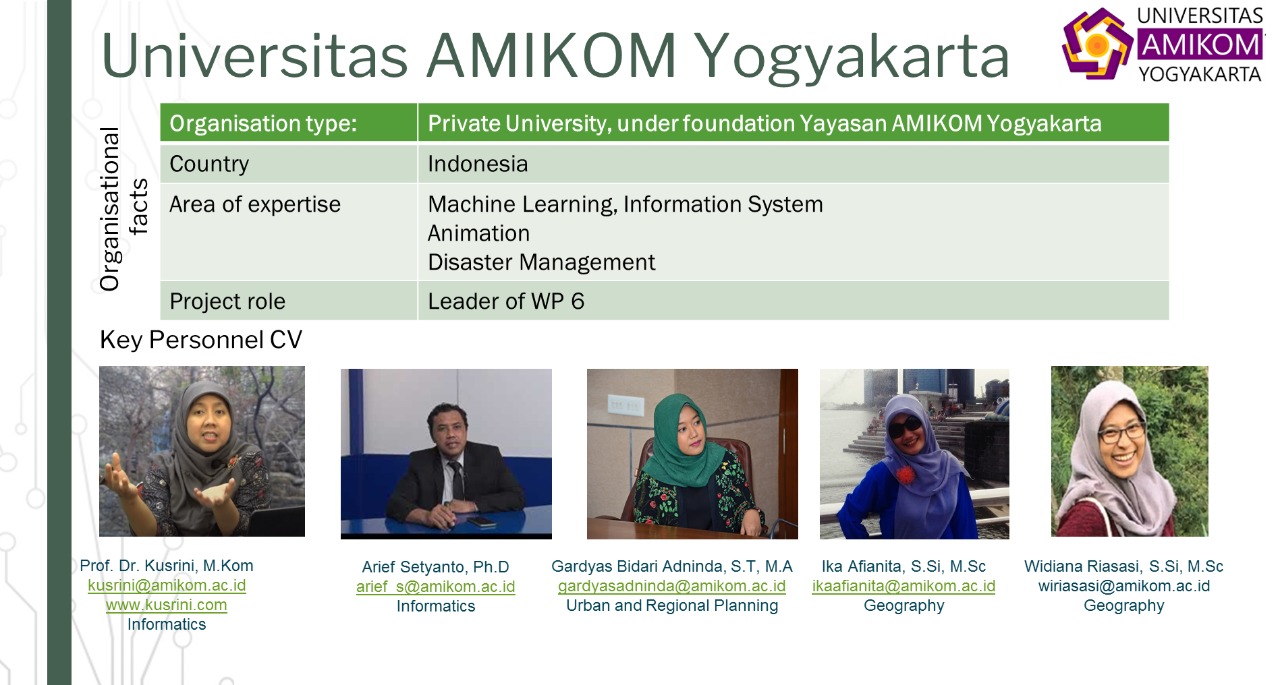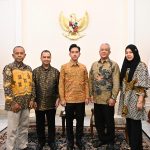Funded by the EU Horizon 2020 Green Deal program and coordinated by Università Telematica Pegaso, The Silvanus project includes 49 partners from the European Union, Brazil, Indonesia, and Australia, with a budget of 23 million euros for 42 months. The Silvanus project brings together a large consortium of interdisciplinary experts from four continents, where Universitas Amikom Yogyakarta is part of the large consortium.
The key output of the project is the release of a climate-resilient forest management platform to prevent and suppress forest fire. Silvanus relies on environmental, technical, and social sciences experts to support regional and national authorities responsible for wildfire management in their respective countries.
Silvanus scientists and research engineers will aid the civil protection authorities inefficiently monitoring forest resources, evaluating biodiversity, generating more accurate fire risk indicators, and promoting safety regulations among the local population affected by wildfire through awareness campaigns.
Universitas Amikom Yogyakarta has been recognized at the 33rd world level as a university that has a real impact on the international community by WURI (World’s University with Real Impact). This research is one proof of AMIKOM’s actual contribution in solving the problems of the world community related to The forest fires.
Prof. Dr. Kusrini (Director of Postgraduate Universitas Amikom Yogyakarta and also Amikom’s representatives in the consortium) Explained that the involvement of AMIKOM’s lecturers in this program will provide them with experience and will encourage lecturers to involve students in the research process with world wide researchers.
In her statement, she said: “This program provides opportunities for the implementation of the KKNI-based curriculum and Merdeka Belajar Kampus Merdeka (MBKM – Independent Learning Independent Campus). It’s also in line with AMIKOM’s vision to be a world-class university.”

What makes Silvanus innovative
In the climate crisis era, where forest fires are becoming more dangerous and frequent, Silvanus aims to offer a new technological solution to improve wildfire preparedness and prevent wildfire ignition. It will achieve it by integrating a big-data processing framework capable of analyzing various data sources such as climate models, weather data, and earth observation tools, leading to intelligent fire ignition models.
Furthermore, these models will be complemented with the use of in-situ environmental sensors, CCTV, and multi-spectral imaging solutions to develop an advanced detection and response toolkit. Silvanus will also introduce sensor technologies that use inventive wireless communication infrastructure through uncrewed aerial vehicles and automated ground robots to coordinate the response among first fighters.
The critical aspect of the project is to consider the expertise and experience of firefighters and the residents who face the dangers of devastating wildfires every year. Silvanus will launch a wide-reaching stakeholder engagement program in forest regions to assess fire risk indicators, develop training methodology for firefighters, use VR and AR training toolkits, and simulate real-world environments and life-saving scenarios. Awareness campaigns will include implementing a mobile application for citizen engagement and automated notifications on safety practices.
The Silvanus project innovations will be systematically deployed and demonstrated across eight EU Member States regions (France, Italy, Slovakia, Greece, Czech Republic, Portugal, Croatia, and Romania). Additional demonstrations will also carry out across Indonesia, Brazil, and Australia.
To ensure that Silvanus’ results have a long-term impact, it will include policy recommendations on forest governance, soil rehabilitation strategy recommendation, and restoration roadmap services for natural resources.
For the duration of its activities and beyond, Silvanus will focus on all three components of fire suppression: prevention and preparedness, detection and response, restoration, and adaptation.
These are the Partners in the large consortium involved in the SILVANUS Project :
Universita Telematica Pegaso, Zanasi Alessandro SRL, Intrasoft International SA, Thales, Fincons Spa, Atos IT Solutions and Services Iberia SL, EMC Information Systems International, Software Imagination and Vision SRL, CNET Centre for New Energy Technologies SA, ADP Valor – Servicos Ambientais, S.A., Terraprima – Servicos Ambientais Sociedade Unipessoal LDA, 3Mon S.R.O., Catalink Limited, Synthesis Center for Research and Education Limited, Expert.AI S.P.A., ITTI SP ZOO, Izquierdo/Piatrik GBR, Massive Dynamic Sweden AB, Fondazione Centro Euro-Mediterraneo sui Cambiamenti Climatici, Exus Software Monoprosopi Etairia Periorismenis Evthinis, Rinigard d.o.o. za usluge, Micro Digital d.o.o. za informacijske tehnologije, Politechnica Warszawska, Hoegskolan I Boras, Geoponiko Panepistimion Athinon, Ethniko Kentro Erevnas Kai Technologikis Anaptyxis, Panepistimo Thessalias, Associacao do Instituto Superior Tecnico Para a Investigacao e Desenvolvimento, Veleučilište Velika Gorica, Ustav Informatiky Slovenska Akademia VIED, Pompiers de L’urgence Internationale, The Main School of Fire Service, Agenzia Regionale Strategica per lo Sviluppo Ecosostenibile del Territorio (ASSET), LETS Italia SRLS, Parco Naturale Regionale di Tepilora, Fundatia Pentru SMURD, Asociatia Forestierilor din Romania ASFOR, Kentro Meleton Asfaleias, Elleniki Omada Diasosis Somateio, Aristotelio Panepistimio Thessalonikis, Ospedale Israelitico, Perifereia Stereas Elladas, Hasicsky Zachranny Sbor Moravskoslezskeho Kraje, Hrvatska vatrogasna zajednica, Technicka Univerzita vo Zvolene, Obcianske Zdruzenie Plamen Badin, Yayasan Amikom Yogyakarta, Commonwealth Scientific and Industrial Research Organisation, Universidade Fedaral do Rio de Janeiro
The Silvanus project will kick off with a hybrid meeting in Naples, Italy, scheduled on the 13th and 14th of December 2021. Please stay tuned for further updates on the project progress.





